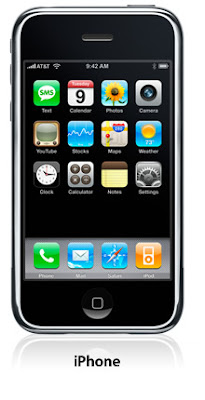It's faster than Windows, it fights viruses – and it's free.
Unless you use an Apple Mac – or you're a particularly dedicated geek – your computer almost certainly runs a version of Microsoft Windows. There's little choice in the matter; almost all consumer PCs come with Windows already installed. Can you be bothered to change that?
But now, this stranglehold has been broken. Dell, one of the global giants that supplies businesses and homes with PCs, is selling some of its PCs with Linux, a rival operating system, already installed.
Linux makes your computer run quicker, it doesn't crash, it doesn't catch anywhere near as many viruses, and it's free. For a decade, it was available only for people to install themselves. But now, the geek's favorite is coming to the masses.

Dell's two Linux machines are the 530n desktop and 6400n laptop. Their prices are low, partly because the version of Linux they run is free. Also, Linux doesn't work your PC as hard as Windows does, so you can get the same performance with cheaper, or older, hardware.
Many in the know prefer Linux.
Michael Dell, Dell's chief executive, is presumably not bothered by cost – he's worth USD15.8 billion (2007). And what does he run on his home laptop? Linux Ubuntu. He also chooses Mozilla's free Firefox web browser and the free software suite OpenOffice. And that's part of the problem for Microsoft. Linux isn't just a threat to Windows; its users will also abandon Microsoft's Internet Explorer and Microsoft Office, too.
Linux Ubuntu comes with everything you need. There's a powerful office program with desktop publishing, an e-mail/organizer, a web browser and instant messager. You can use your iPod with it, too.
Windows, on the other hand, is continually under assault from the nasty side of cyberspace. And the software bundled with it is more basic. You get Internet Explorer and Outlook Express for web browsing and e-mail, a notepad, a paint program and a word processor, along with various media applications. If you want more software, you have to pay for it.
Linux already powers everything from supercomputers to mobile phones. Google runs more than 10,000 Linux servers. Amazon.com switched to Linux and saved a cool USD17m. The French National Assembly has started using Ubuntu on more than 1,000 computers. And since the blockbuster movie Shrek, the Dreamworks studio has been using Linux to render its 3D graphics and special effects.
Linux was created in 1991 by Linus Torvalds, a student in Helsinki. It was released to his computer community, who made improvements. In 2003, Microsoft put Linux high on its risk list. "The general economic environment is risk and driver No 1," said John Connors, Microsoft's then chief financial officer. "Linux and non-commercial software is risk No 2." Linux needs to pick up 2.5 million users a year to claim even 1 per cent of the market, but with Toshiba rumored to be pondering a range of PCs with Linux installed, it could be the thin end of the wedge.
So is this the time to make a switch to Linux with your next PC purchase? Should you take Windows off your creaking old machine and give it a new lease of life, courtesy of Linux? The table of comparisons will help you decide.
 Ubuntu 7.04 LinuxWhat's best about it?
Ubuntu 7.04 LinuxWhat's best about it? Should make your existing computer responsive and lightning-fast – switching it on, powering down, and launching programs are all so much quicker than on Windows. And unlike Windows, Ubuntu doesn't slow down over time.
What's worst about it? It may not have every feature you'd like – it's quick because it's stripped-down. Plus you could have difficulties getting Ubuntu to work with other hardware. It's not quite as "plug and play" as Windows.
How much does it cost? It's free! But if you run into difficulties and need technical support you will have to pay for it (unless the free Ubuntu online forums can help, that is). This costs around RM875 a year.
Is it good for music fans? Comes with Sound Juicer, for ripping audio from CDs; Rhythmbox, for organizing music and listening to internet radio (the closest thing to iTunes); Serpentine, for burning CDs; and Sound Recorder for recording anything on your PC.
What about photos and videos? "F-spot" lets you get them from your camera and organize them into albums. Movies and videos can be watched in the Totem Movie Player, which compares well to other movie apps that are available.
What if I need to use it for work? The powerful free office program, OpenOffice, comes as default with Ubuntu. Many say it rivals, or even beats, Microsoft Office. The word processor is particularly sophisticated. The presentation, spreadsheet and drawing components are equally impressive and easy to use.
Does it crash much? No. Linux is renowned for being one of the most stable operating systems around.
How would I fight viruses? The vast majority of virus attacks are not aimed at Linux. But if you are concerned, the excellent Aegis Virus Scanner comes with the Ubuntu package and can run in the background searching for dubious files or attachments as you work.
 Mandriva LinuxWhat's best about it?
Mandriva LinuxWhat's best about it? Linux Mandriva is a more attractive and fully featured operating system than Linux Ubuntu, but some say it's not as fast. The Beagle search is a big boon, enabling you to search documents, chat rooms, email and contact lists. It's also very fast – and has an attractive, intuitive interface.
What's worst about it? Some users report that Mandriva struggles when you want to plug in a new USB hard drive or flash memory stick – it's not always as simple to set them up as it is with other systems.
How much does it cost? The latest package, Mandriva Linux Discovery 2007 Spring For Beginners, costs just RM235. If you haven't had previous experience with Linux, you may also want the manual, at RM145. The snag: it's 292 pages long.
Is it good for music fans? You can produce your own music with the Linux MultiMedia Studio. To store and play your favorite tunes you use Rhythmbox, which was inspired by Apple's iTunes. It has all the usual features, including streamed internet radio and podcasts.
What about photos and albums? The Photo Album application is included, which does a great job of organizing your snaps and lets you enhance colors and reduce red-eye. It also allows you to view slide-shows and print your snaps.
What if I need to use it for work? Evolution is the Outlook equivalent of Linux and lets you send e-mails and organize your calendar and contacts. Office 1.6.2 is a lightweight but more than adequate office suite.
Does it crash? Crashes aren't common on any Linux system – so long as it is properly set up. If they do happen it is usually down to a hardware problem.
How would I fight viruses? Linux rarely catches viruses, but the free Clam AntiVirus software is very easy to set up and automatically updates so it can look f or the latest viruses. Many Linux users feel comfortable not using any anti-virus software at all.
 Windows VistaWhat's best about it?
Windows VistaWhat's best about it? Everything looks sharper and more vivid than it does on the outgoing Windows XP. The new Flip 3D application helps you quickly switch between the different windows, and the search features have been greatly improved, too.
What's worst about it? Six months after it launched, gripes continue. Many people still complain that they can't run their favorite programs on Vista, so many others are holding off upgrading from XP until a second edition of Vista arrives.
How much does it cost? Around RM380 for the home Premium edition. If you want all the bells and whistles, go for the Ultimate edition at around RM645.
Is it good for music fans? It's on a par with Mac's offering, and better than the Linux equivalents. The new Windows Media Player lets you rip CDs to your PC, buy new tracks, and link to an MP3 player.
What about photos and videos? All the basics are covered. Windows Media Center also lets you browse your photos, put on slide-shows, play DVDs, watch and record TV shows from the web, download movies and watch your home videos. Or use Windows Movie Maker to cut your own home movie.
What if I need to use it for work? RM475 buys Windows Vista Business, with its fax software, but you could buy a fax machine for that. MS Office costs RM400 – but try OpenOffice, its free rival (www.openoffice.org).
Does it crash much? Microsoft says Vista is the most stable release of Windows yet. Many users, however, are unimpressed – they complain of crashes on a daily basis, saying it may be feature-packed but it's still not safe.
How would I fight viruses? You'll need to buy your own antivirus software, such as Norton Internet Security 2007 (around RM130).
 Windows XPWhat's best about it?
Windows XPWhat's best about it? XP is in its final edition, so most bugs have been ironed out – unlike the newer Microsoft Vista package. Many programs don't yet work with Vista (Mozilla, the maker of the Firefox browser, recommends you stick with XP), so it might be wise to keep using XP for a while yet if you already have it.
What's worst about it? Microsoft will end support for XP Home Edition in a couple of years. This means you'll have to ensure you keep your antivirus software up-to-date, but even so, security could still be compromised.
How much does it cost? It's no longer available in most shops, but you can pick up used copies on Amazon, and elsewhere on the web, from about RM350 up to about RM700.
Is it good for music fans? Windows Media Player 10 will serve most of your music needs. It's not as good as the music softeare in Vista or Mac OS X, but you can sync your music collection with over 70 different MP3 players. Smart Jukebox lets you burn music to CDs, rip your own CDs and listen to internet radio.
What about photos and videos? Photos can be viewed and organized in XP's default viewer. Better still, download the free Irfanview (www.irfanview.com), which also doubles as a basic photo editor, and plays movies.
What if I need to use it for work? You can either pay for MS Office (RM400 for the standard edition) or get the cheaper Microsoft Works. Alternatively, download the free Open Office, which zips along on XP and has all the features of MS Office, but doesn't have the Outlook organizer.
Does it crash much? Like all versions of Windows you'll get the infamous "blue screen of death" now and again. One way to minimize this is to avoid loading too many programs, or plugging in too many different types of hardware at the same time.
How would I fight viruses? It's essential to run your own antivirus software. A good option is Avast! 4 Home Edition, which is free (www.avast. com/eng/ avast_4_home.html). Otherwise you have to buy something like Norton Internet Security 2007 (around RM130).
 MAC OS X TigerWhat's best about it?
MAC OS X TigerWhat's best about it? It's very easy to use and set up and has all the essentials included: calendar, e-mail and address book, and a web browser. The Spotlight search technology finds lost files in seconds.
What's worst about it? Once you're in the Apple world it's hard to migrate to other operating systems. Apple provides everything - the hardware, software and OS - which tends to lock you in. You can't just install it on a PC.
How much does it cost? The basic operating system is RM575. Since it's so easy to easy to use, you're unlikely to incur any extra technical support costs.
Is it good for music fans? Mac's iTunes still sets the pace, letting you buy audio and video from the iTunes store, rip music from your CDs and burn your own compilations.
What about photos and videos? iMovie records and edits videos, while QuickTime 7 lets you view them. And iPhoto organizes and does some simple editing of photos and other images.
What if I need to use it for work? Networking and four-way video conferencing are bundled in. OpenOffice gives you a good free word processor, spreadsheet and so on. If you buy MS Office, you'll see that Outlook isn't made for the Mac, but Entourage is, and it does the same thing.
Does it crash much? Mac OS is a very stable operating system and rarely crashes. An application might quit but the whole machine won't freeze, so you don't have to restart.
How would I fight viruses? The Mac operating system is extremely secure. Viruses and worms that target Windows are virtually non-existent on the Mac. It also has built-in security settings so you can encrypt data and set various password-protection options.















































